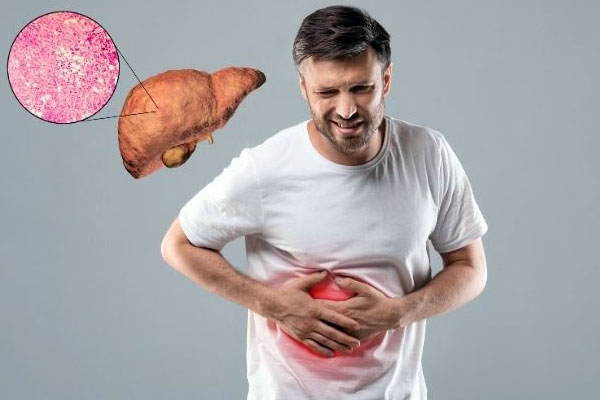
(Image source from: Canva.com)
Fatty liver is often believed to be a result of drinking a lot of alcohol. Nonetheless, too much fat can accumulate in the liver even in those who do not drink, particularly in those who are overweight or obese. Non-alcoholic fatty liver disease (NAFLD) has become more common and impacts people who drink little or no alcohol. In fact, it is the most common kind of liver disease. If it is not addressed, fatty liver may worsen into more serious issues like cirrhosis. Your diet and way of living have a big impact on the chances of developing non-alcoholic fatty liver disease (NAFLD). Eating a balanced, nutritious diet full of fiber, lean proteins, and good fats is the best approach to boost liver health. This also aids in reducing the risk of various diseases and encourages healthy weight loss. Eating too many high-calorie foods, especially those loaded with sugars, unhealthy fats, and processed items, can lead to weight gain and fat buildup in the liver. Moreover, consuming too many refined carbs and sugary drinks can cause insulin resistance and weight gain, thereby increasing the chances of fatty liver disease.
Regular physical activity can assist you in keeping fit and greatly lower the risk of chronic health issues. Not being active not only leads to weight gain but also raises the chance of developing fatty liver disease. Your eating habits and lifestyle choices are also related to other elements that can heighten the risk of fatty liver. A few of these include:
Obesity: Fatty liver is more frequent in non-drinkers who are overweight or obese. Having extra body fat, especially around the stomach, can result in more fat being stored in the liver.
Metabolic issues: Conditions such as diabetes, high cholesterol, and high blood pressure are linked to a higher risk of fatty liver. A poor diet and lack of activity can worsen these problems, creating a cycle that increases the risk for fatty liver.
Other elements that can raise the risk of fatty liver disease:
Smoking
Insulin resistance
Genetics
Polycystic ovary syndrome (PCOS)
Obstructive sleep apnea
Thyroid problems
Hormonal imbalances.
A lot of fat in the liver can prevent it from functioning properly. However, prompt treatment and changes in lifestyle can help stop it from getting worse. If you are overweight, losing weight gradually through a healthy diet and regular exercise can help avoid permanent harm. A diet rich in nutrients and based on whole foods is usually suggested for those with non-alcoholic fatty liver disease.







